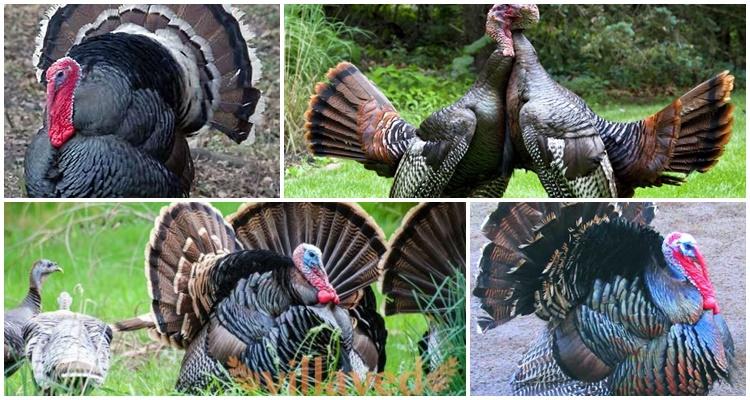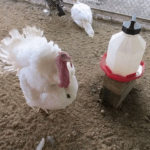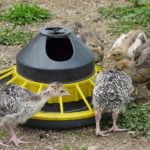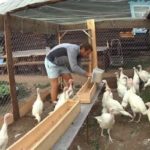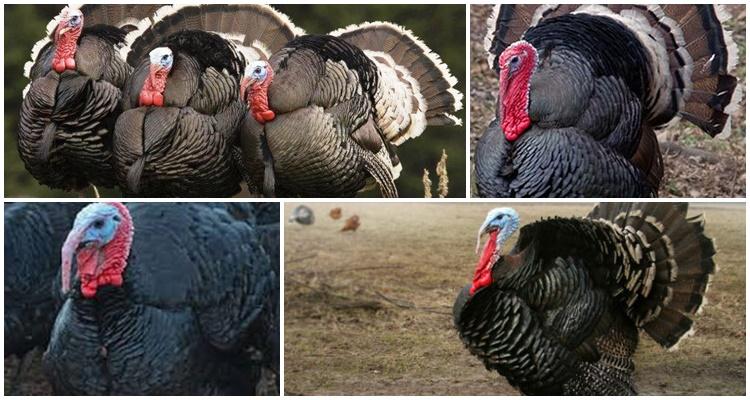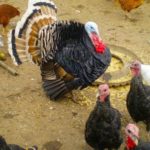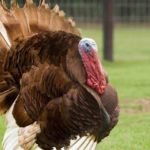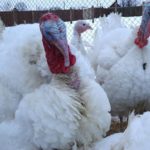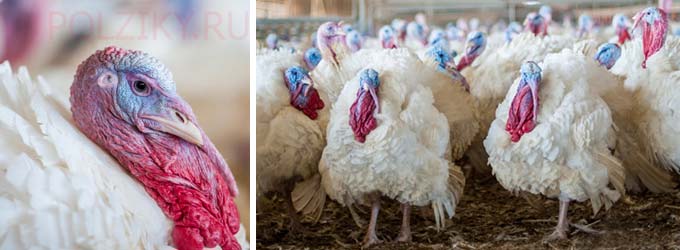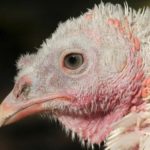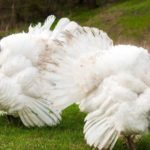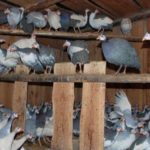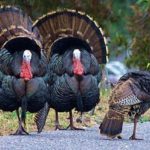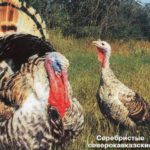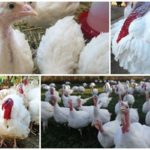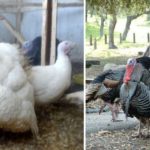Eating disorders, which manifest themselves in birds as loss of appetite, worry breeders for good reason. The question of why turkeys do not eat the food offered well must be resolved in a timely manner. Indifference to food usually has objective reasons, is often a sign of various diseases and requires attention and a thorough approach to the problem from poultry farmers.
Why do turkeys refuse to eat and what to do?
The reasons why turkeys refuse to eat are often nutritional factors, under the influence of which pathological conditions subsequently develop. Unfavorable factors include:
- improper care;
- unbalanced diet;
- low-quality feed;
- lack of preventive examinations and veterinary supervision.
Violation of the rules for keeping birds results in infectious, inflammatory diseases and parasitic infestations. Improper diet and nutritional management lead to malfunctions in the digestive system of turkeys and provoke the development of dysfunction of the gastrointestinal tract. As a result, the bird grows poorly, does not gain weight, and in the presence of infection and parasites, the entire flock may suffer.
Pathologies in the gastrointestinal tract
By nature, turkeys are active birds with a good appetite. Young turkey poults in normal condition willingly run up to the feeder. Poor appetite or refusal to eat, an apathetic, lethargic state of birds is a reason to suspect problems with the digestive tract.
In most cases, the cause is thickening of the goiter caused by prolonged stagnation of food. It is necessary to examine the turkey and palpate the crop sac. In case of stagnation, upon palpation, a compaction is felt, called a hard goiter.
The cause of the formation of a hard goiter is:
- non-compliance with time intervals between feeding, as a result of which birds attack the feeder and quickly swallow large volumes of food;
- large grains that pass through the esophagus with difficulty and are poorly processed by the digestive system;
- the absence in the diet of turkeys of small pebble stones that perform the function of grinding feed.
In advanced cases, the food bolus causes atrophy of the mucous membrane of the thymus sac.As a result of the decay process, toxic substances are formed. The bird does not eat and moves little. When palpating a hard goiter, treatment should be started immediately.
Treatment of hard goiter includes the following steps:
- daily fasting;
- washing the goiter sac with a slightly pink solution of potassium permanganate;
- soldering with a 0.5% aqueous solution of hydrochloric acid;
- diet therapy.
After a day without food, turkeys begin to be offered soft food: chopped boiled eggs, oatmeal, mashed cottage cheese. Dilute hydrochloric acid is given instead of drinking water. After a three-day diet, if the condition improves, the turkey poults are offered mixed feed and fine gravel is introduced at the rate of 1 gram per bird.
If the condition is aggravated by the development of inflammation, as evidenced by the appearance of swelling and the release of purulent mucus, treatment is carried out with antibiotics and local antimicrobial agents under the supervision of a veterinarian.
Helminthiasis
Helminthic infestations occur in turkeys as a result of being in unsanitary conditions or consuming contaminated feed or water. Parasites enter the gastrointestinal tract, develop in the intestines and can spread through the bloodstream through organs and tissues. The bird weakens, refuses food, and loses weight.
The following drugs are used to treat helminthiasis in turkeys:
- "Piperazine";
- "Albendazole";
- "Ivermek";
- "Prasiver";
- "Fenbendazole"
After the course of therapy, turkey poults are given easily digestible food (porridge, greens, cottage cheese, boiled eggs). If worms are detected in one or more birds, it is necessary to treat the livestock, poultry house, feeders, drinkers, and also change the bedding.
Protozoal diseases
Turkeys, like other birds, are susceptible to diseases caused by protozoa. Birds are affected by the following types of single-celled parasites:
- mycoplasma (causes mycoplasmosis);
- trichomonas (trichomoniasis);
- chlamydia (ornithosis);
- coccidia (coccidiosis).
Symptoms of the disease include loss of appetite, apathetic state, and ruffled plumage. The turkey sits ruffled, retracting its neck. In case of coccidiosis, the livestock experiences food refusal, diarrhea, and feather loss. The presence of symptoms is the basis for examination with subsequent therapy.
Antiprotozoal drugs and antibiotics are prescribed. The drugs are given with food or water under the supervision of a veterinarian.
Infectious diseases
Unfavorable living conditions and poor nutrition reduce the immune defense of turkey poults and cause the development of infectious diseases. The agents are viruses and bacteria. Signs of infection include:
- refusal to eat;
- lethargy;
- ruffled plumage;
- discharge from the eyes.
Treatment is prescribed by a veterinarian. They use antibiotics, antimicrobial agents, and vitamins. Uncontrolled treatment of birds for infection is not recommended in order to avoid the development of drug resistance if the treatment regimen is incorrect.
Prevention of the problem
Preventing diseases is easier than curing them.
Prevention measures include:
- compliance with the conditions for keeping birds (maintaining constant temperature, humidity, cleanliness in the house, lighting level);
- providing livestock with adequate nutrition;
- inclusion of vitamin and mineral supplements in the diet;
- carrying out drug prevention of diseases;
- vaccination;
- veterinary control.
Healthy turkeys have an excellent appetite.To avoid serious problems in the poultry house, it is important and necessary to promptly pay attention to the behavior of its inhabitants.

